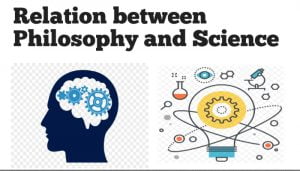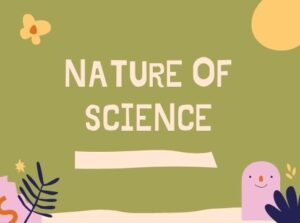Teaching life science in secondary school provides students with a strong foundation in biological concepts, and helps them develop critical thinking and analytical skills. In addition to academic benefits, studying life science can also instill important values and attitudes towards science, the natural world, and the ethical considerations surrounding scientific research. In this context, it is important to explore the values of teaching life science in secondary school and its broader impact on students and society.
Values of teaching life science in Secondary School
Teaching life science is associated with values. The values of teaching life science are-
1. Intellectual Values:
Huxley states that “Scientific thinking is organized common sense” and is applicable to all life situations. Science is an inexhaustible source of knowledge. It has intellectual value
- It gratifies our intellectual instinct and makes us aware of our surroundings and ourselves.
- It sharpens our intellect and develops in us a spirit of honesty critical observation and unbiased judgment ability
- It develops in us scientific attitudes and scientific attitudes and scientific methods in the pursuit of truth and solution of problems of life.
- Helps in developing logical thinking, reasoning, analysis, synthesis, and concentration.
2. Vocational Values
Science has generated a number of vocations that help individuals in earning their bread. It plays a vital role in learning and acquiring different professionals and their professional skills.
Science fosses the foundation of so many professionals ranging from engineering, technology, and agriculture medicine to pursue science like physics, chemistry, Biology, applied science and biophysics, biochemistry, biotechnology, etc. Scientists, doctors, and researchers all require a basic foundation in life Science.
A man having a source of scientific knowledge can never remain unemployed. The study of science also forms the basis of many useful hobbies which could ever become vocations in later life Eg. the Manufacture of soaked, detergents, bread, cleansing solution, etc
3. Utilitarian Value or practical value
Scientific laws and principles find a large number of applications in our daily life. Some of the practical or utilitarian value of science lies in-
- Raising the standard of living: We find a network of scientific gadgets in our daily life which has improved man’s standard of living and made life comfortable and easier through gifts or TV, computers, electricity, etc.
- Medicine and health: Science discovered a large number of medications used to cure diseases that were considered to be incurable earlier. Also, it has given a new method of prevention of disease and lengthening the average life-span of an ordinary man
- Scientific hobbies: Science gives us a number of hobbies that can be useful to pursue eg, gardening, photography, games, etc.
4. Moral Value
Kothari Commission (1964-1966) comments that “ Science strengthens the commitment of a man to free inquiry and to the guest for truth as his highest duty and obligation”. It acts as a powerful dispeller of fear and superstition and passive resignation.
Indian philosophy list goodness, truth, and beauty as the three basic values that condition our activities and make our life worthwhile. These are the qualities of a successful scientist and a true scientist is therefore of high morals. It is said that “Science is the search for truth in a truthful manner” No scientist can ignore the truth. His success is based on truth.
5. Psychological Value
The entire teaching and learning process of science is based on the fundamental principle of psychology “learning by doing” and “Learning by observation” concrete and living specimens or objects. Being an activity-oriented subject. Science helps us to satisfy the basic human desire of knowing about the wonders of nature and satisfies common instincts like curiosity, creativity, independent thought, and sound decision-making. Also, it develops reasoning and thinking power among the students.
6. Cultural Value
Culture includes all activities thoughts, feelings, attitudes, and patterns of the individual or social life of man. Science plays an important role in determining the culture and civilization of the country from time to time and has a profound influence on our way of thinking and our way of living.
It directly affects our thinking, beliefs, customs, and traditions and dispels many superstitions believe. Science has an influence on the thinking, belief, tradition, and customs, lifestyle which in turn influence culture as a whole.
7. Aesthetic Value:
For the layman, science is relevant because of its utilitarian aspects, but a scientist would see truth and beauty in it. Every scientist is a true artist and his discoveries are a piece of art. Science develops in man a passion for truth and thus he has a passion for beauty. Science is basically unfolding the mysteries of nature and nature is a storehouse of all beautiful things. Thus the teaching of science is essential for developing an aesthetic sense in an individual.
8. Disciplinary value
Science brings mental and physical discipline to the lives of individuals. Problem-solving, decision-making, critical thinking, perseverance, and commitment to the task are some of the mental disciplines that a student develops through the study of science.
Also, the study of science teaches the students to undertake physical work like practical experimentation for long hours in the laboratory, collecting the data record analyzing and interpreting the data, and arrive at conclusion. All these activities result in the development of self-discipline in the students.
9. Social Value
Science and Society have become two sides of one coin. Science gives impetus to the progress of society through its new ideas, thoughts, discoveries, and inventions. It makes a man a useful citizen and brings the world and all people very close.
Science teaches us to be healthy to prevent the spread of epidemics and provide first aid in case of accidents to the victims. This type of health education imbibes in children social consciousness and responsibility towards society. Today society stands on pillars of scientific techniques and knowledge. Eg. computers, the internet, etc Science helps in making social life happy healthy, comfortable, and easy.
10. Value of Scientific attitude
The teaching of science has a specific discipline popularly known as scientific attitude to develop among the learners. These attitudes include keen observation, critical thinking open minded free from superstition, etc. The development of a scientific attitude has a great impact on an individual’s psychology that way of thinking.
11. Values of Scientific method or adjustment in modern life
Science develops in us specific procedures for attacking a problem by applying scientific principles such as the method called “Scientific Method” which prepares an individual to face the problems of life boldly and to solve them successfully.
Conclusion:
Science is an essential discipline and an important place in our lives. It gives them knowledge of various phenomena and facts and also trains students to be balanced and cultured citizens by preparing them aesthetically, psychologically, culturally, and morally. It is a very useful subject in developing scientific hobbies, Scientific attitudes, and scientific temper, this subject has a very important place in the school curriculum of modern times.



